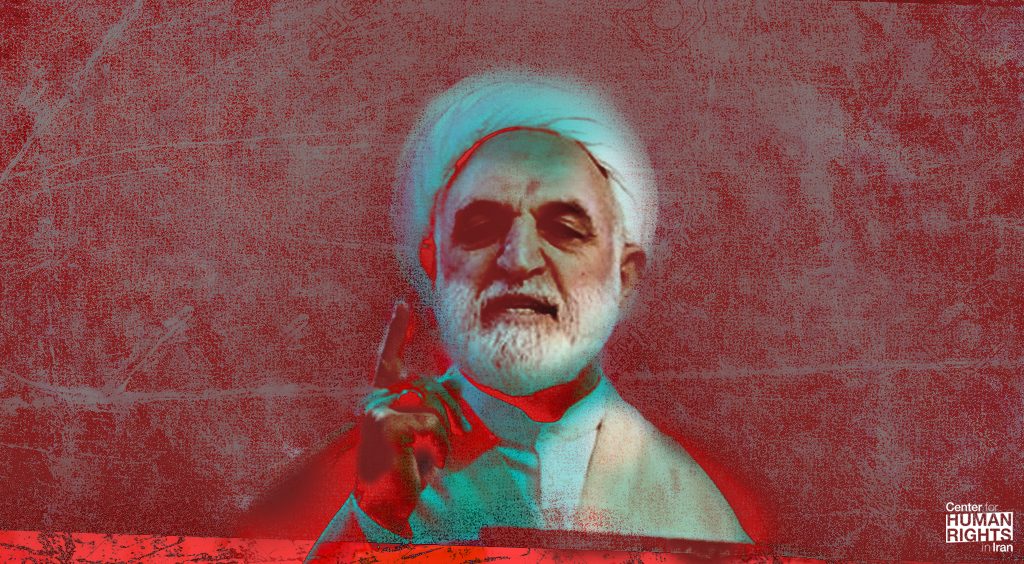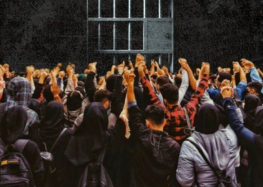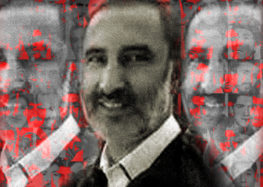Mohseni-Ejei’s Appointment as Iran’s Judiciary Chief Poses Grave Threat to Rights Activists
 Judicial System To Be Used To Further Suppress Dissent
Judicial System To Be Used To Further Suppress Dissent
July 6, 2021—The appointment of Gholam-Hossein Mohseni Ejei, a major human rights violator, as the Islamic Republic’s new judiciary chief is another indication of the commitment by the country’s ruling establishment to use the judicial system as a means to suppress peaceful dissent in Iran.
“Ejei’s appointment is an obvious threat to Iran’s civil society, considering his considerable role in suppressing popular protests and fabricating cases against human rights and political activists,” said Hadi Ghaemi, executive director of the Center for Human Rights in Iran (CHRI).
“It shows the Islamic Republic, more than ever, is using all arms of the state to crush protest and confront political and civil rights activists,” Ghaemi added.
Ejei’s appointment by Iran’s supreme leader, Ayatollah Ali Khamenei, follows the engineered election on June 18, 2021, of Ebrahim Raisi, another major human rights violator, as the country’s president.
A former intelligence minister and influential cleric as deputy judiciary chief, Ejei has a long record of unlawful actions and severe human rights abuses against political and civil rights advocates.
His appointment has heightened concerns regarding the continued suppression of dissidents and peaceful activists in Iran, as Ejei’s fingerprints are on numerous political cases in which individuals were unjustly and unlawfully prosecuted and even executed.
Ejei and President-Elect Raisi Used Judiciary as Arm of Security Apparatus
Ejei and Raisi, whom Ejei served under in the judiciary as Deputy when Raisi (who is now the president-elect) was Judiciary Chief, both attended the ultra-conservative Haghani seminary school in Qom, where many of its graduates have become key figures in the Islamic Republic’s security and judicial apparatus.
Ejei was the judiciary’s representative in the Intelligence Ministry from 1985 to 1988, during one of the darkest periods in the Islamic Republic’s history when thousands of political activists and sympathizers were arrested and extrajudicially executed.
Ejei’s name is also tied with what became known as the “chain murders” in the 1990s, when dozens of Iranian intellectuals were brutally murdered, and he was specifically suspected of ordering the murder of Pirouz Davani, an Iranian dissident writer and activist whom agents of the Ministry of Information allegedly kidnapped and killed in 1998.
From 2005 to 2009, Ejei was the intelligence minister in Mahmoud Ahmadinejad’s first administration, when he spearheaded a campaign against civil rights activists and journalists in particular, accusing them of attempting a “soft revolution” against the Islamic Republic and forcing many of them to make televised false “confessions” that were typically extracted under torture.
In 2009, following numerous documented reports of torture and sexual assault against protesters arrested in the aftermath of massive demonstrations against the suspect re-election of president Ahmadinejad, Raisi and Ejei were appointed to a committee to investigate the matter. Refuting clear and substantial evidence, they concluded there was no evidence to prove the allegations—even though this later proved to be false with the subsequent prosecution of Tehran’s prosecutor for the abuse and murder of four people in Kahrizak Detention Center at the time.
“With the domination of security and military figures in all three branches of state, there is serious concern that there will be an unprecedented push to crush and eliminate peaceful dissent,” Ghaemi said.
Since 2010, Ejei has been sanctioned by the U.S. and the European Union for human rights abuses.
Read this statement in Persian.






